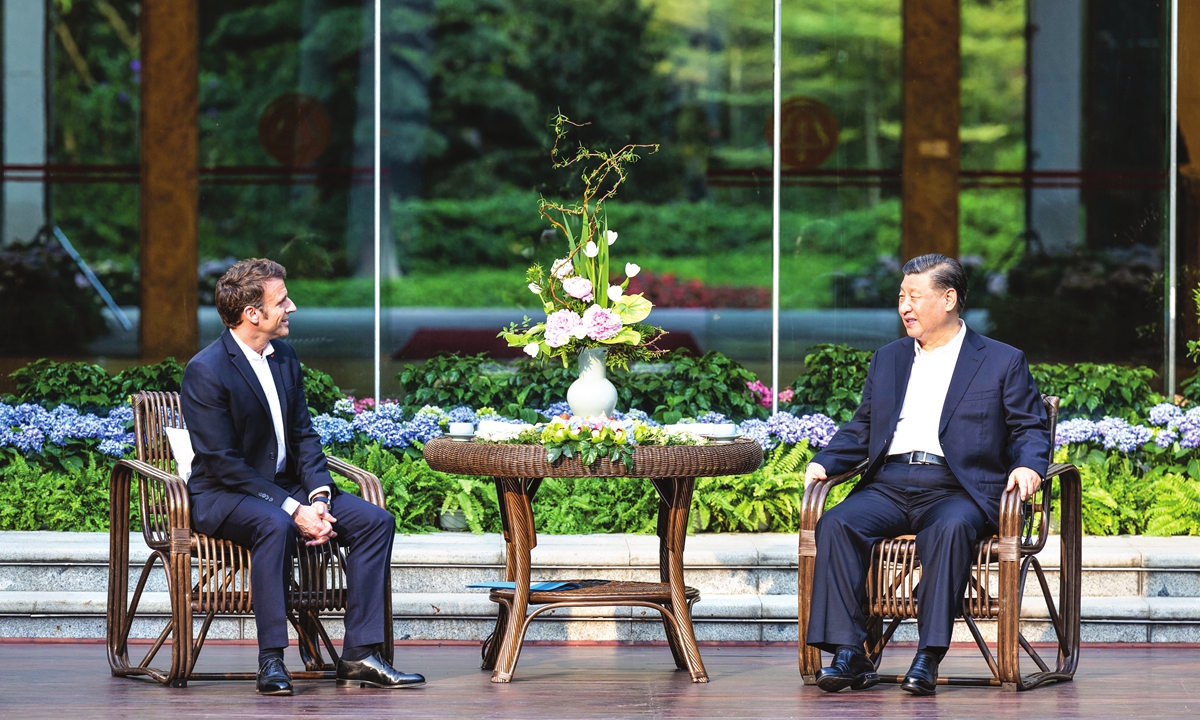
France and China agreed to renew their partnership in nuclear energy during the recent state visit of French President Emmanuel Macron to China. This was one of a raft of economic agreements reached in the course of the three-day trip, during which Macron was accompanied by a large delegation, including 50 key business representatives.
As a result of the visit, France signed 15 business contracts with China worth billions of euros.
The Elysee said French state utility EDF had signed a deal to renew its 2007 global partnership contract with China General Nuclear Power Group, which includes the concept development, construction and operation of nuclear power plants. EDF also signed a €1bn contract with China Energy Investment Corporation to build an offshore wind farm in China.
In the 51-point final declaration signed by Macron and Chinese President Xi Jinping, point 23 referred to common desire for a transition to a low carbon energy system. “France and China are developing pragmatic cooperation in the field of civil nuclear energy within the framework of the Cooperation Agreement for the Peaceful Uses of Nuclear Energy between the two governments,” it said. “The two countries are committed to continuing their nuclear cooperation on cutting-edge research and development topics, in particular on the basis of the agreement between the Atomic Energy Authority of China (CAEA) and [France’s] Commission for Atomic Energy & Alternative Energies (CEA). The two countries support the study by companies in the two countries of the possibility of strengthening their industrial and technological cooperation, in particular on the question of the reprocessing of nuclear waste.”
Senior Chinese officials said China will boost economic relations with France and enhance business cooperation in both traditional sectors such as aviation, nuclear energy and high-end consumption and emerging areas such as medicine and new energy.
Yu Yuantang, head of the European Department of the Ministry of Commerce, said at the fifth meeting of the Franco-Chinese Business Council that the Chinese path to modernisation will provide new opportunities, new drivers and new space for the growth of both Chinese and French enterprises. The meeting was attended by over 100 French and Chinese companies seeking business cooperation.
Yu said that, as an influential power in the European Union, France should shoulder the shared responsibilities with China to safeguard the free trade system and maintain a stable and secure supply chain between China and the EU.
Last year, China and the EU made steady progress despite numerous challenges, with bilateral trade registering a record high of $847.3bn, said Yu. He added that European companies also showed confidence in the Chinese market, investing $12.1bn in 2022, up 70% from 2021.
"China will support the development of European enterprises in China, and encourage competent Chinese enterprises to invest in Europe," he said.
In order to better facilitate business cooperation between China and France, Liu Jin, President of the Bank of China, vowed greater support in the financial sector. The role of the Chinese renminbi in the two-way trade will be better leveraged, he said, while Chinese and French financial institutions in future will strengthen connections in capital markets, deepen cooperation and jointly expand the overall market. He added that the two countries boast mutual industrial complementarity and broad prospects for cooperation in third-party markets such as Africa and Southeast Asia.